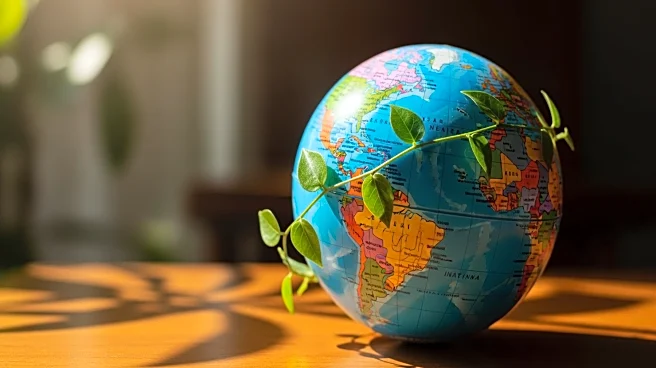What is the story about?
What's Happening?
Doctors Without Borders, known internationally as Médecins Sans Frontières, has announced the suspension of its medical activities in Gaza City due to the escalating security risks posed by ongoing Israeli military operations. The organization cited the 'rapidly deteriorating security situation' as the primary reason for halting its operations, which are critical for providing lifesaving medical care. The decision comes as Israeli forces have intensified their strikes on Gaza City over the past two weeks, with the Israeli government expressing intentions to take control of the area. The humanitarian crisis in Gaza has worsened significantly since the U.S.-backed Gaza Humanitarian Foundation took over aid distribution in May. The situation is dire, with vulnerable populations, including infants and those with severe injuries, facing grave danger as they are unable to access necessary medical care.
Why It's Important?
The suspension of medical activities by Doctors Without Borders highlights the severe humanitarian crisis unfolding in Gaza. The inability to provide medical care exacerbates the already critical situation for the residents of Gaza City, particularly for those with life-threatening conditions. This development underscores the broader implications of the ongoing conflict, which has resulted in significant casualties and injuries. The humanitarian needs in Gaza are immense, and the suspension of medical services could lead to further deterioration of the health situation. The international community may face increased pressure to address the humanitarian needs and seek a resolution to the conflict, as the situation poses a significant challenge to global humanitarian efforts.
What's Next?
The immediate future for Gaza City remains uncertain as the conflict continues. The international community, including humanitarian organizations and governments, may need to intensify efforts to negotiate ceasefires or humanitarian corridors to allow for the safe delivery of aid and medical services. The ongoing conflict could prompt further diplomatic interventions aimed at de-escalating the situation and addressing the humanitarian needs of the affected populations. Stakeholders, including the United Nations and regional powers, may play a crucial role in facilitating dialogue between the conflicting parties to prevent further humanitarian disasters.















